press release
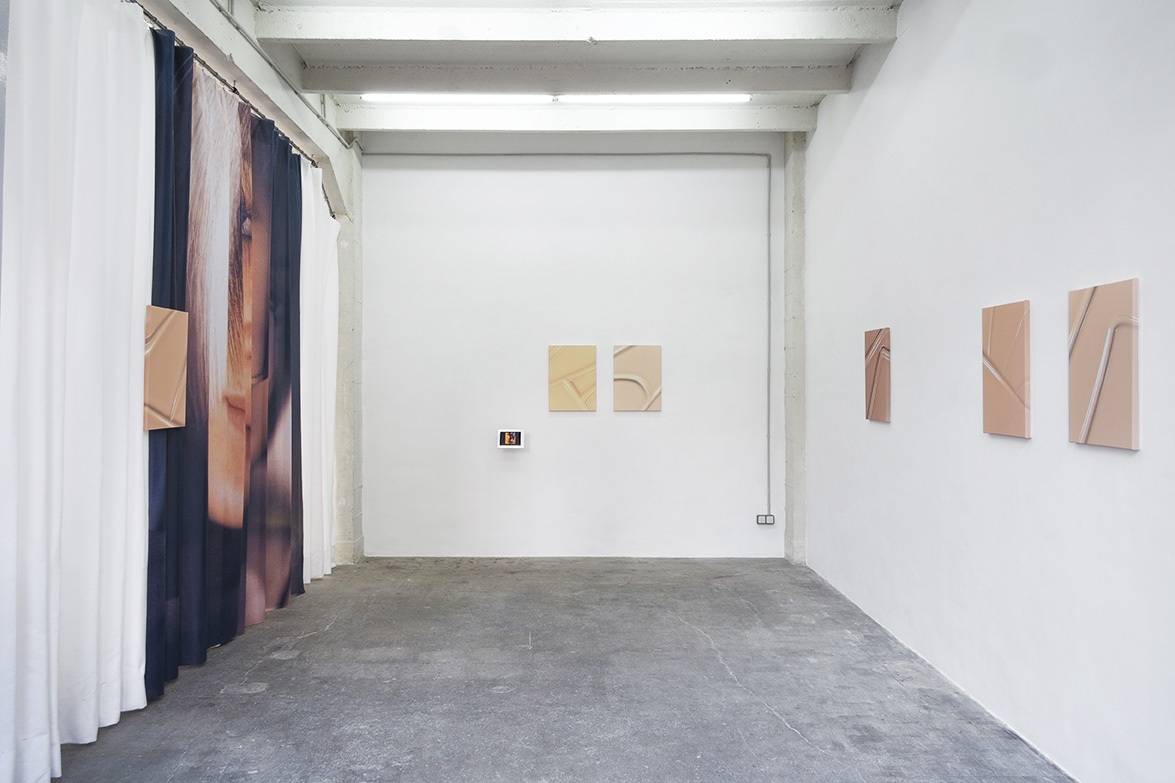 Ben Elliot, Meitu MakeupPlus, 2018
Ben Elliot, Meitu MakeupPlus, 2018Exhibition view, Exo Exo, Paris
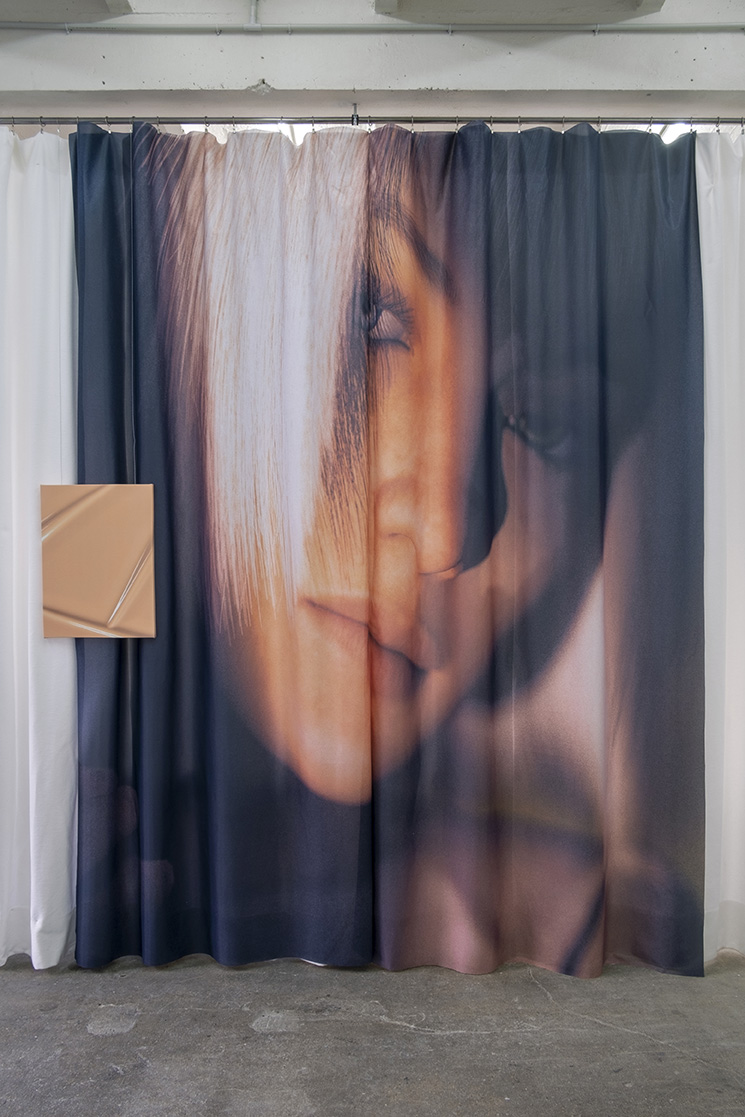 Ben Elliot, Meitu MakeupPlus, 2018
Ben Elliot, Meitu MakeupPlus, 2018Exhibition view, Exo Exo, Paris
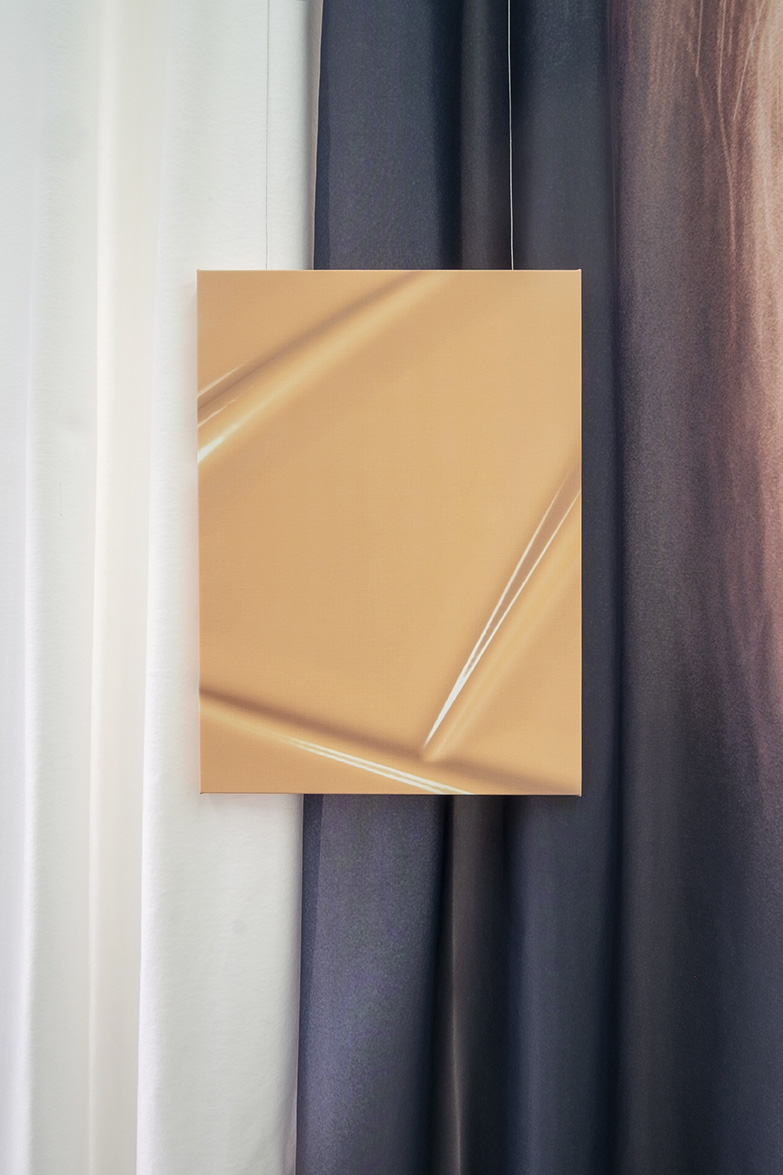 Ben Elliot, Meitu MakeupPlus (Honey), 2018
Ben Elliot, Meitu MakeupPlus (Honey), 2018Pigment inkjet on canvas
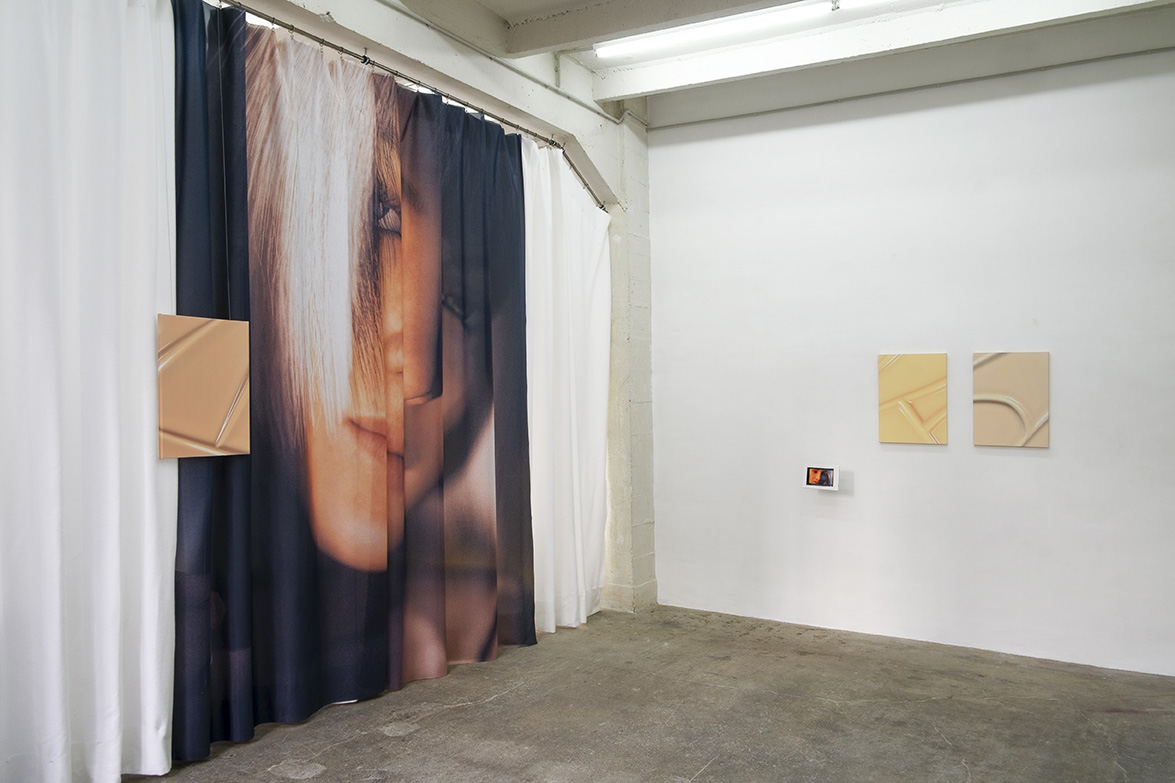 Ben Elliot, Meitu MakeupPlus, 2018
Ben Elliot, Meitu MakeupPlus, 2018Exhibition view, Exo Exo, Paris
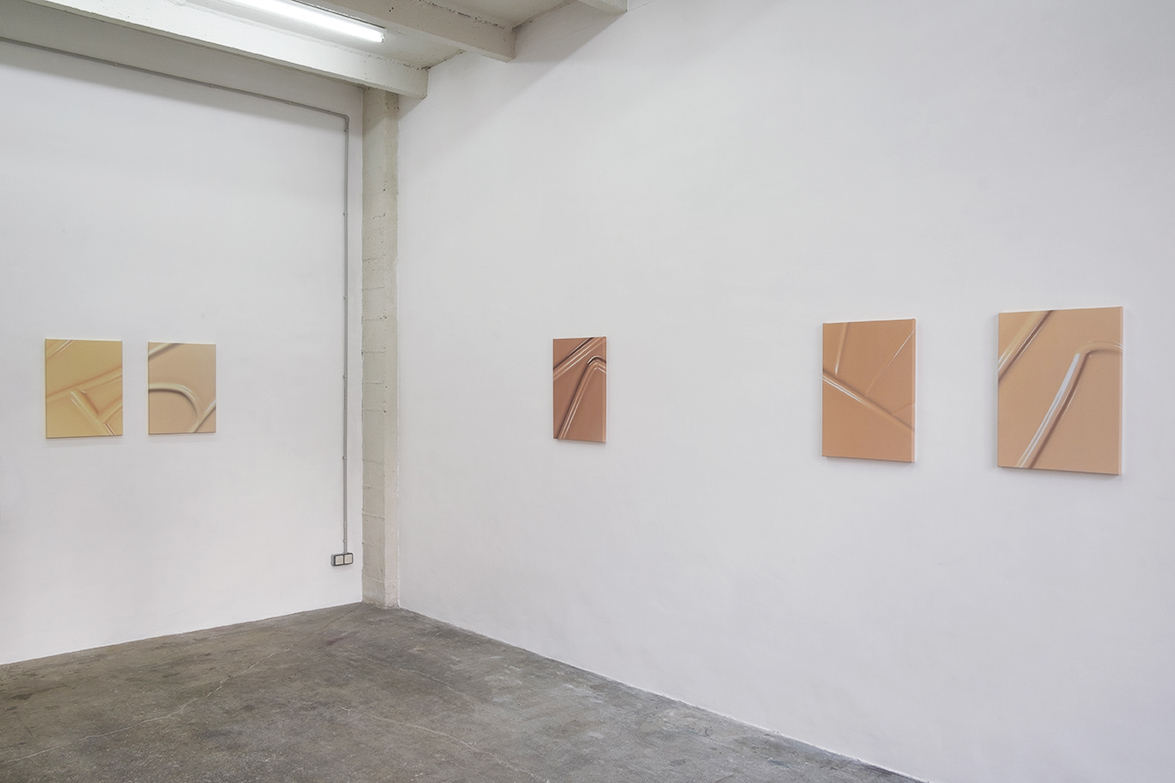 Ben Elliot, Meitu MakeupPlus, 2018
Ben Elliot, Meitu MakeupPlus, 2018Exhibition view, Exo Exo, Paris
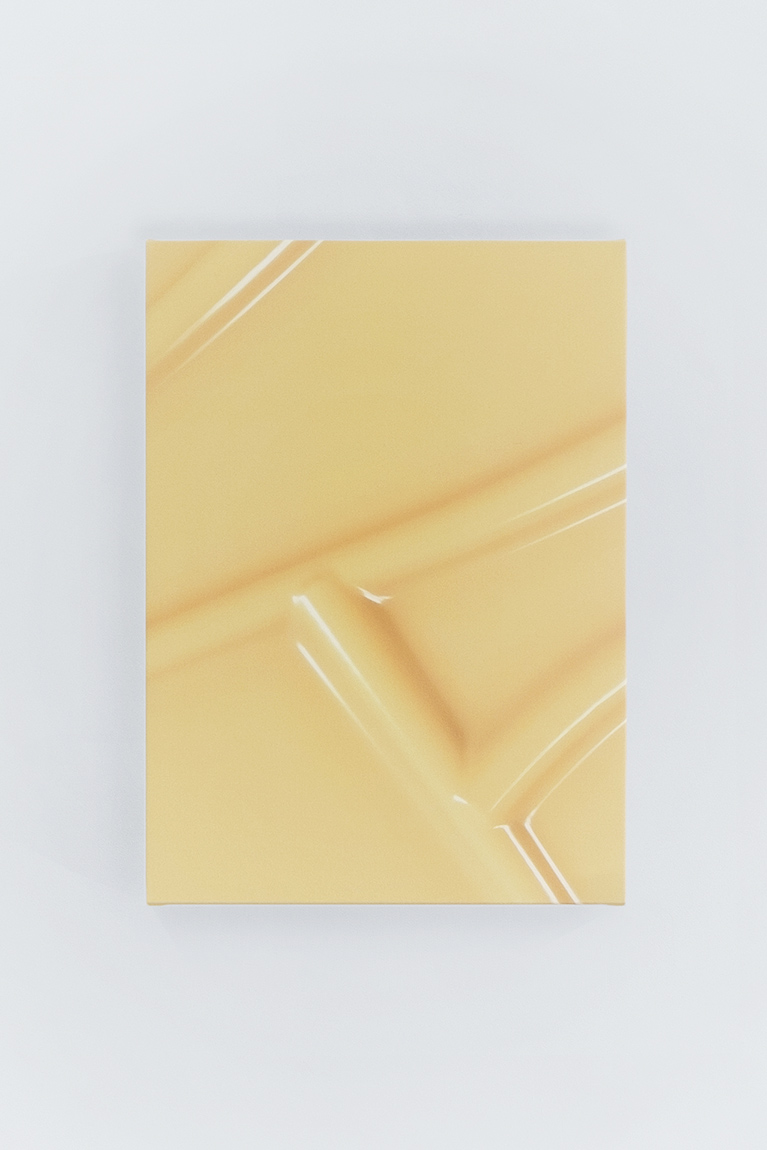 Ben Elliot, Meitu MakeupPlus (Sand), 2018
Ben Elliot, Meitu MakeupPlus (Sand), 2018Pigment inkjet on canvas
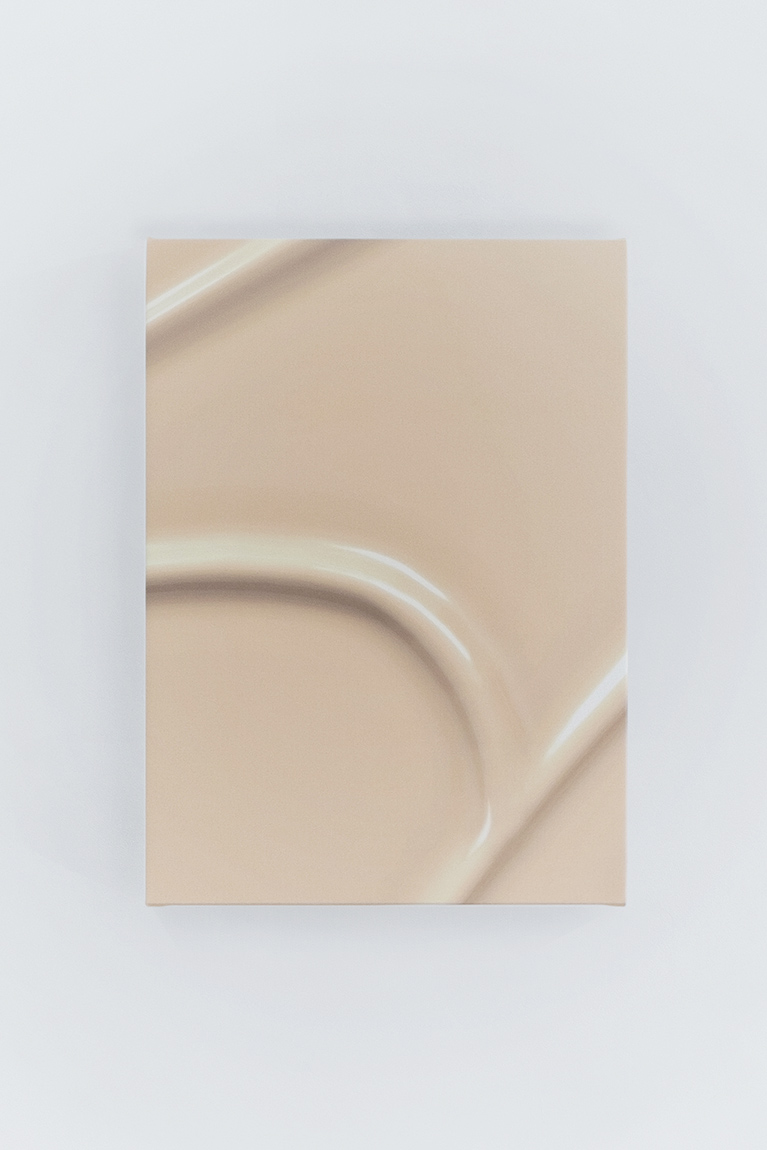 Ben Elliot, Meitu MakeupPlus (Beige), 2018
Ben Elliot, Meitu MakeupPlus (Beige), 2018Pigment inkjet on canvas
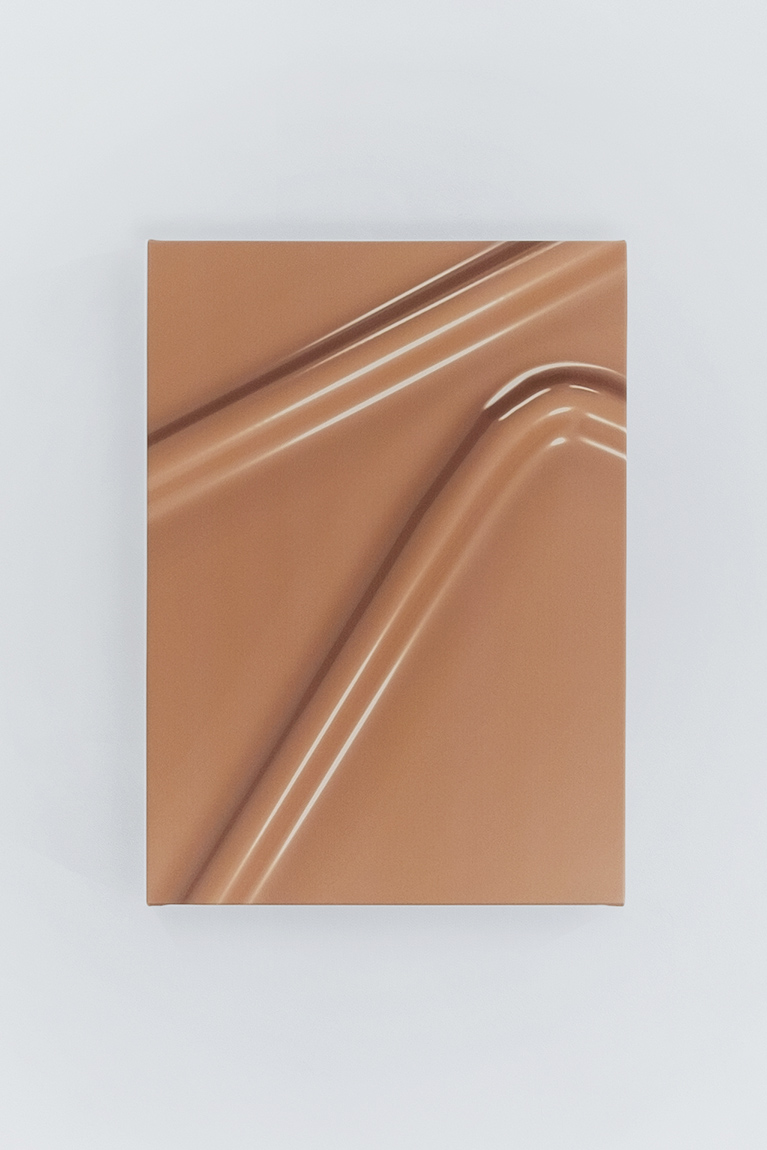 Ben Elliot, Meitu MakeupPlus (Toffee), 2018
Ben Elliot, Meitu MakeupPlus (Toffee), 2018Pigment inkjet on canvas
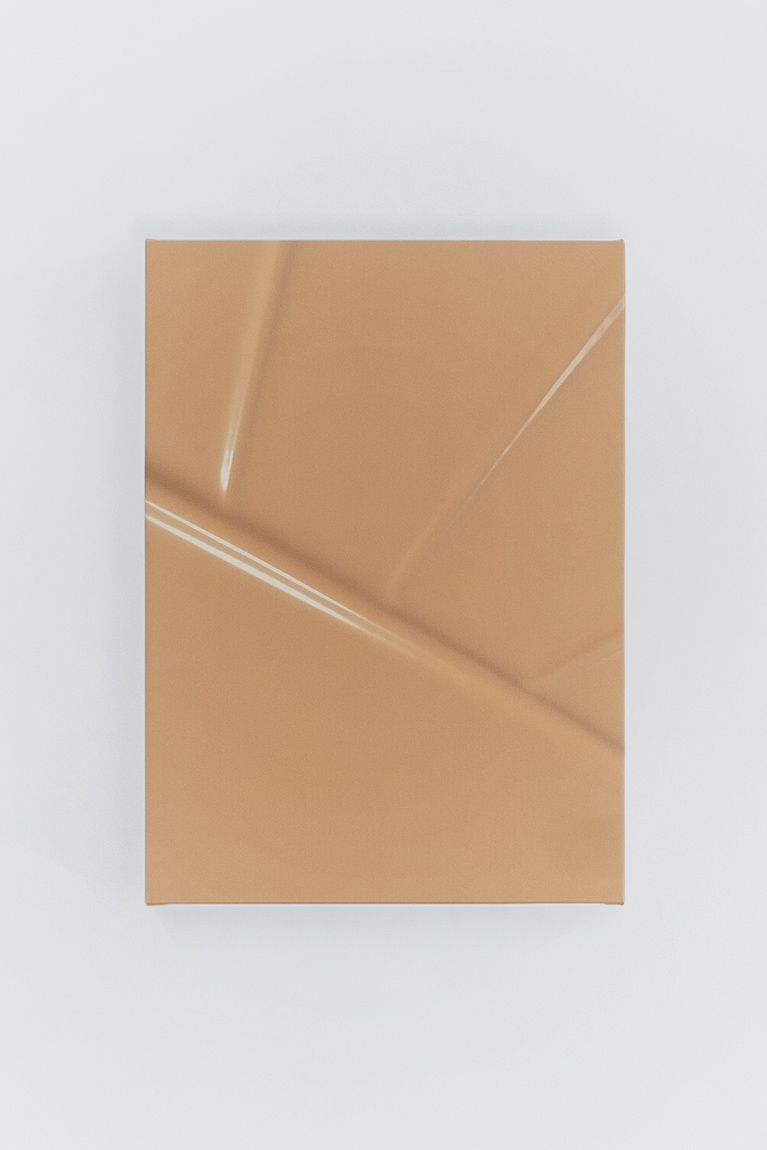 Ben Elliot, Meitu MakeupPlus (Tan), 2018
Ben Elliot, Meitu MakeupPlus (Tan), 2018Pigment inkjet on canvas
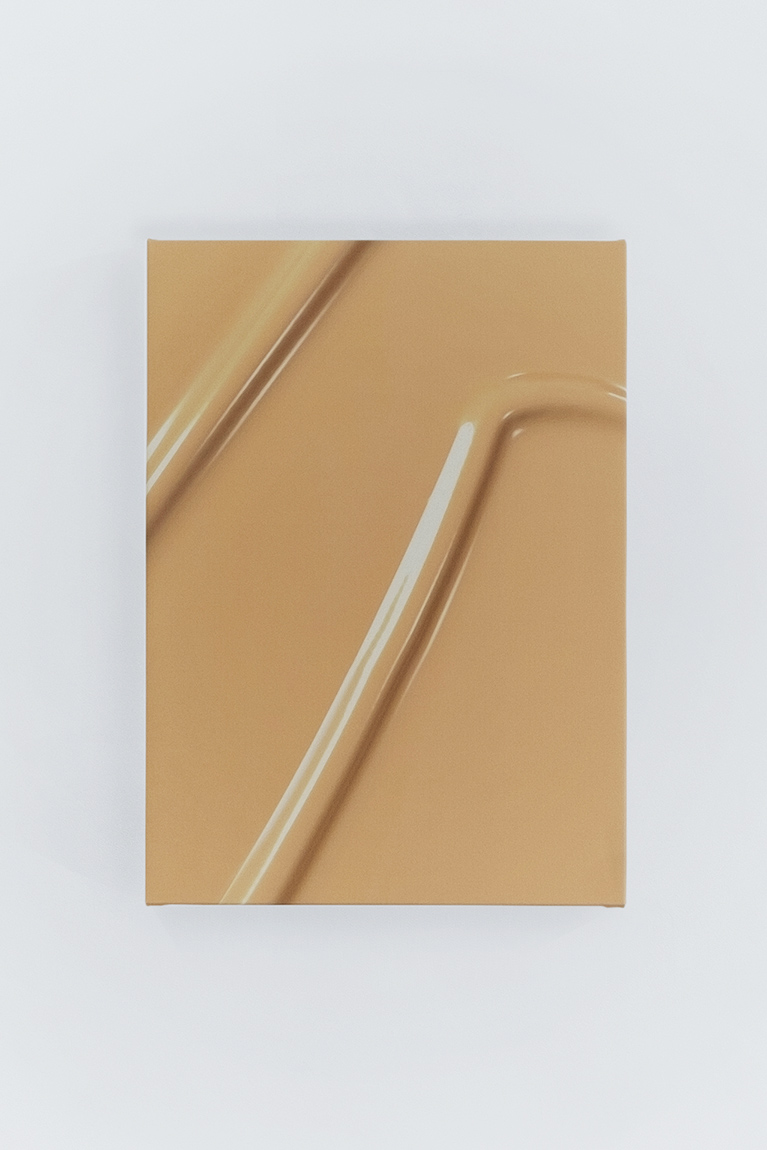 Ben Elliot, Meitu MakeupPlus (Bronze), 2018
Ben Elliot, Meitu MakeupPlus (Bronze), 2018Pigment inkjet on canvas
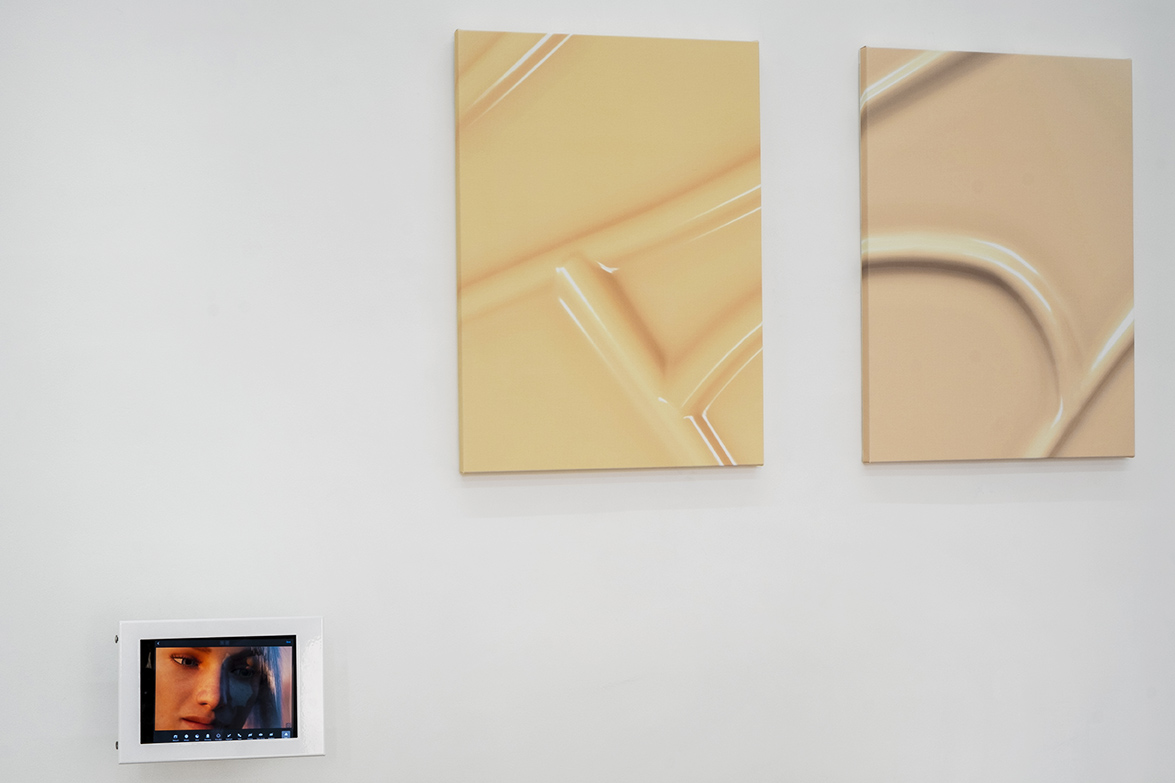 Ben Elliot, Meitu MakeupPlus, 2018
Ben Elliot, Meitu MakeupPlus, 2018Exhibition view, Exo Exo, Paris
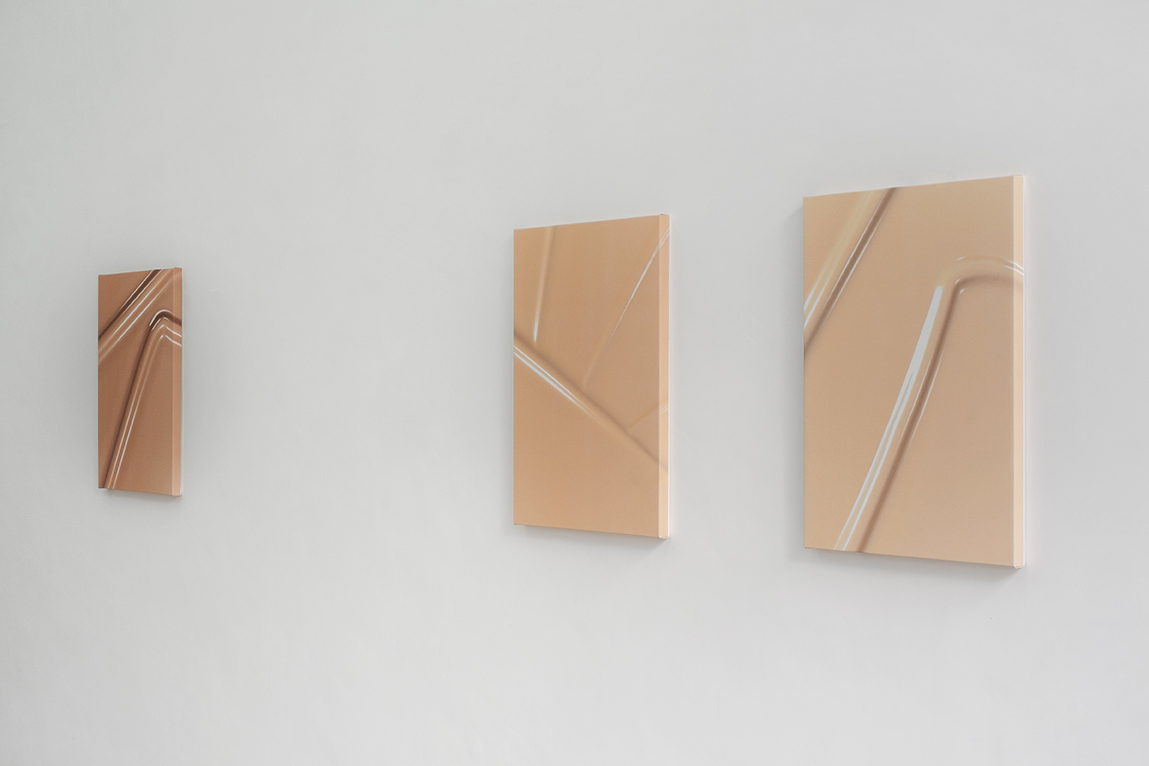 Ben Elliot, Meitu MakeupPlus, 2018
Ben Elliot, Meitu MakeupPlus, 2018Exhibition view, Exo Exo, Paris
Ben Elliot’s Meitu MakeupPlus solo exhibition is the result of a brand collaboration with MakeupPlus, a smartphone application developed by Chinese technology company Meitu Inc. Installed on over 100 million devices worldwide, the app is self-described as an «advanced facial recognition and augmented reality technology to enable users to virtually try on top and trending makeup looks (as well as create their own), and then learn how to bring those looks into the real world using in-app makeup tips and video tutorials».
As a continuation of Ben Elliot’s research on brand collaborations as a starting point of his artistic process, the works in the show operate as smart advertising, creating quality space for brand content.
The exhibited canvas depict six of the twelve standardized skin tones developed by Meitu to simulate the most-used shades of their users. The app’s icons are enlarged and reproduced to take the shape of paintings. They are examples of the interpretation of skin tones in a mass market digital context. On a curtain, a portrait taken from computer-generated influencer @perl.www‘s instagram is printed. She appears as the face of the project, embodying digital beauty and Artificial Intelligence.
Essay by Indira Béraud:
When I discovered Ben Elliot on Instagram, during a brief instant, I could not figure out whether he was real or not. I thought he was another of those robots influencers, which have more followers than celebrities. But no, despite his aseptic look of sponsored avatars, Ben Elliot is a real young artist. Thus, it is no coincidence that his work explores the porosity among social networks, branding and influencing, technology and collaborations — all interests that highlight issues related to online identities, notions of authenticity and privacy, as well as the equivocal relationship between art and current capitalism.
If this exhibition follows the path of his precedent works preoccupation, it is also a return to a more conventional form of art: frame and canvas. Here, everything happens on the surface: the monochromatic, glossy color is a printed foundation shade offered by MakeUpPlus. This mobile application gives the means to embellish oneself with digital make-up before one shares photographs on social media. The then-standardized skin appears smoother and homogenous, devoid of imperfection. Hence, more than it shows, the edited image hides things. In this widespread practice of “self-design” resides a desire of recognition, a will of being liked by society. According to Boris Groys, who theorized the notion of “self-design”, this staging turns the contemporary subject into an object — an object whose eroticism is activated by the gaze of others. Surface substitutes substance, appearances take over depth. Analogously, only outer layers matter in Ben Elliot’s pieces, with which spectators are invited to engage in deep contemplation.
Far from subversion or cynicism, Ben Elliot embraces the language of our time. In the manner of Fabrice Hyber, who created a cube of lipstick in collaboration with Yves Saint Laurent, the artist finds new ways of producing art by collaborating with brands like Meitu Inc. Except that here, there is no volume, the material is flattened and loses its consistency. The ready-made brush traces do not testify the artist’s gesture but rather a will to replicate a motion effect. As it is often the case with digitalization, the body’s movement has disappeared from the process. The paint is dematerialized into a color code, just as the body image is incrementally fixed into the virtual. Where the skin once only concerned the living body, a porous membrane which delineates the inner self from the world, a boundary between I and others, it now becomes a slick reflection. The process of reshaping our personality on extrinsic media paves the way of what we could call “post-humanism conditions”. Indeed, the set of data gathered online constitutes our memory, a virtual self that might absorb our own existence, and survive us after death.
This exhibition is made possible with the support of Louise Briskmann, Antoine Donzeaud, Samy Ghiyati, Meitu Inc., Elisa Rigoulet.
Visuals: @plusmurs & @perl.www